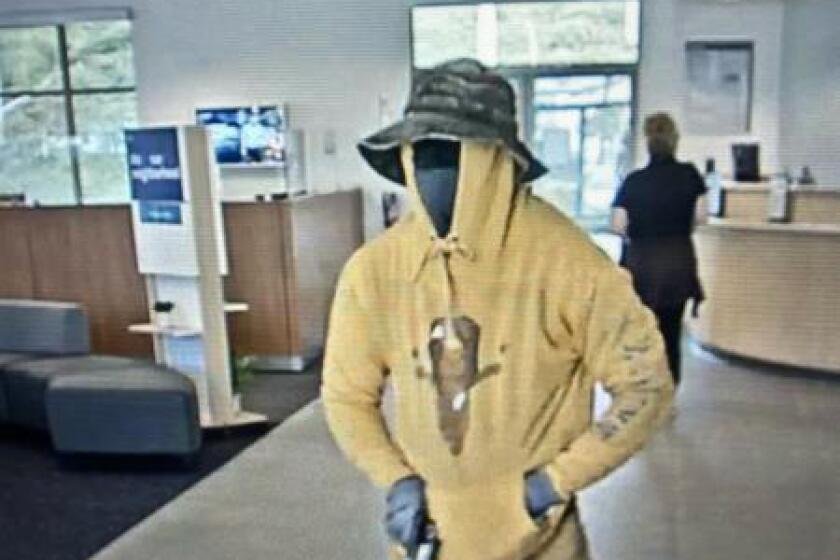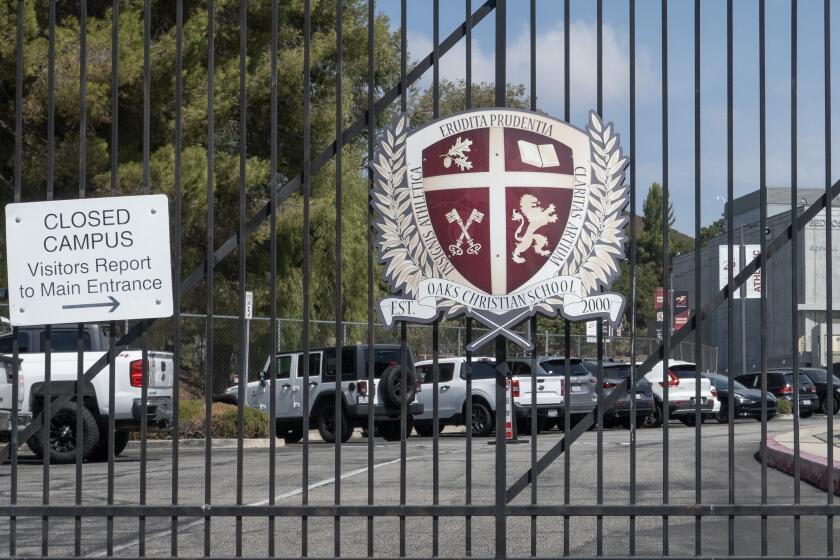Appeal Court Backs Defense, Removes Judge from Triple-Murder Trial
San Diego Superior Court Judge Jack Levitt, engaged in an acrimonious battle with the criminal defense bar, lost another round this week when a state appellate court removed him from the trial of Billy Ray Waldon, who is accused of killing three people.
The unanimous order by the 4th District Court of Appeal, written by Justice Don R. Work and released Tuesday, reversed an earlier decision by Levitt to remain on the case despite efforts by Waldon’s attorneys to disqualify him because of alleged bias.
Defense attorney Charles Khoury Jr. said the appellate court’s nine-page ruling “correctly decided a very narrow legal issue” and was “in accordance with the law as I understood it.”
Khoury said he and co-counsel Geraldine Russell expect to have the case reassigned to another judge at a hearing this morning.
Prosecution Considers Appeal
Prosecutors, however, said they may seek a review of the matter by the state Supreme Court, a move that would stall reassignment of the case. Deputy Dist. Atty. Charles Patrick, who believes the appellate justices were in error, said he is attempting to determine when the order removing Levitt from the case is scheduled to take effect.
“We’re seeking clarification from the court on that question before we do anything else,” Patrick said.
The ruling removing Levitt marks the third time in five months that the conservative, tough-sentencing judge has been formally challenged on his ability to be impartial during trial.
In May, Assistant Public Defender Mark Wolf alleged that Levitt had exhibited a bias against him--and consequently imposed an excessively harsh sentence on Wolf’s client, an accused rapist--in a 1986 case in which the judge held Wolf in contempt for missing a hearing.
Levitt Denied Prejudice
In a written response to the challenge, Levitt denied harboring prejudice against Wolf and insisted the sentence was just. But Presiding Superior Court Judge Thomas G. Duffy upheld Wolf’s challenge and ordered the lawyer’s clients moved to another court.
Three weeks later, Khoury asked that Levitt step aside from presiding over the competency hearing for Waldon. Khoury charged that a string of courtroom confrontations between Levitt and the defense bar--including a 1974 episode in which Levitt cited Khoury for contempt and ordered him jailed for making improper statements during a closing argument--demonstrated that the judge “may well be vindictive” and “has difficulty being impartial towards certain attorneys.”
Levitt was cleared of Khoury’s accusation in July in a ruling upheld by the 4th District Court of Appeal.
Experts say so-called “challenges for cause” are extremely rare and note that Levitt, a meticulous jurist praised for his legal scholarship but criticized for emphasizing form over substance, has drawn more than his share.
Challenged More Often
A study of criminal court records commissioned by defense attorney Allen Bloom found that, for the year ended March 31, lawyers formally challenged Levitt--thereby removing him from their cases--10 times more often than any other Superior Court judge. Levitt was challenged 34 times, while there were only 17 other challenges overall. The jurist with the next highest number of challenges--Judge Raul Rosado--had just three.
Bloom said another study of the reversal rate of Superior Court judges whose cases are appealed to the 4th District Court indicates that 60% of Levitt’s decisions have been overturned.
The judge has been at the center of other controversy as well. In May, the Criminal Defense Bar Assn. asked the state Commission on Judicial Performance to rebuke Levitt for posting cartoons outside his courtroom that its members considered offensive. The commission declined, reporting that the matter was outside their purview.
Finally, Bloom is preparing to ask the commission to remove Levitt from office for demonstrating a lack of judicial temperament, and at least one other attorney is considering filing a similar request.
Appointed by Reagan
Levitt, a Superior Court judge since his appointment by then-Gov. Ronald Reagan in 1972, is on vacation until Monday and was unavailable for comment.
At issue in the Waldon case was whether the defendant had already exhausted his right to exercise the challenge to remove Levitt from presiding over the trial. When Waldon filed the peremptory challenge, it was denied by Levitt on grounds that the defendant had already used the single challenge accorded him in the earlier competency hearing. Levitt also said the filing of the challenge was untimely.
The appellate court, however, disagreed. Justice Work, with Justice William L. Todd and Presiding Justice Daniel J. Kremer concurring, ruled that the competency hearing and the trial are “separate and distinct” and that a defendant therefore is entitled to file peremptory challenges in each proceeding. The court also found that the challenge was filed in a timely manner.
Patrick, the prosecutor handling the case, said the district attorney’s office still believes the two proceedings constitute one criminal action, thereby providing for only one challenge.
“We simply feel that . . . a competency determination is within the context of a criminal case and they therefore are all one case, not separate actions,” Patrick said. “So they only get one challenge.”
Waldon is charged with murder in the December, 1985, slayings of a 42-year-old Del Mar Heights woman and her 13-year-old daughter and the shooting death two weeks later of a University Heights man. Prosecutors have filed special circumstances allegations in the case, meaning Waldon could face the death penalty if convicted.
More to Read
Sign up for Essential California
The most important California stories and recommendations in your inbox every morning.
You may occasionally receive promotional content from the Los Angeles Times.










